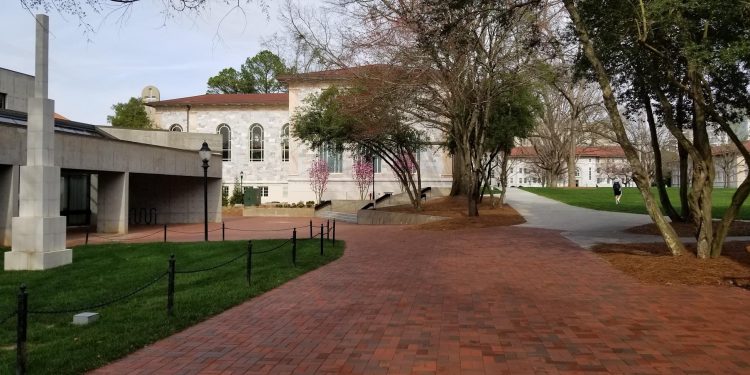Marion Hood received another letter from the Emory University Institution of Medicine more than sixty years after the school declined his application to the medical programme there. This time, it was an apology for the fact that the medical programme he wanted to enrol in did not accept him because of his race.
The letter, which was sent in March and signed by Vikas Sukhatme, dean of Emory University School of Medicine, stated, “Your rejection letter serves as a sombre reminder that generations of talented young men and women were denied educational opportunities because of their race, and our society was denied their full potential.” The letter was sent by Emory University School of Medicine and was sent by Vikas Sukhatme. “An apology does not undo our actions. It is an acknowledgment of the suffering that was inflicted by our school, and it is also an opportunity for us to communicate our regret directly with you.
Emory University School of Medicine held a virtual event on Thursday for students, faculty, and staff members to apologise to Hood, who is now 83 years old. The event was held as part of the university’s Juneteenth programming.
Register for The Morning e-mail newsletter that is published by the New York Times.
Marion Hood was sent a letter of rejection in 1959 for no other reason than the fact that he was a Black man. “That shouldn’t come as a surprise to anyone who is familiar with the history of our country,” Gregory Fenves, the President of Emory University, stated during the occasion. “This one person and this one letter vividly shows the systemic injustice of that time and the legacy Emory is still reckoning with,” the author writes.
After going to the doctor with his mother, who worked as a nurse, Hood made the decision to pursue a career in medicine when he was approximately 8 years old.
At the function that took place on Thursday, he related the story of how he and his mother were led inside the clinic through the building’s rear door and instructed to wait in a room that lacked any kind of furniture but had empty Coca-Cola crates for seating instead. After waiting until the very last patient had been examined, the physician examined Hood’s mother.
“I was livid,” Hood remarked afterward. “I thought to myself that if I were a physician, my mother and my kind would not have to go in via the back door, or wait so long simply to be seen.” “I said to myself that if I were a physician, I would not be able to do either of those things.”
Hood, who ultimately pursued a medical education at Loyola University in Chicago, has maintained a successful career as a gynaecologist and obstetrician in Atlanta for a significant amount of time.
The narrative progresses.
After completing his studies at Clark College, which is now known as Clark Atlanta University, he made the decision to submit an application to Emory University. A professor from Emory University was presented with an honorary degree by Clark University, a historically Black institution, during the professor’s graduation ceremony.
Emory was not yet desegregated at the time, and the university did not admit its first Black student until the year 1963.
Hood recalled that she had the following train of thought: “He can come to my institution and get an honorary degree and I can’t put my foot on his campus.” “That didn’t seem to me to be quite appropriate.”
After submitting his application to Howard University and the Meharry School of Medicine in Nashville, Tennessee, Hood ultimately made the decision to submit his application to Emory University. One week later, on August 5, 1959, he received a letter informing him that he had been denied admittance. The letter was signed by the director of admissions at the institution at the time.
According to a report by The Atlanta Journal-Constitution, the contents of the letter read as follows: “I am sorry I must write you that we are not authorised to consider for admission a member of the Negro race.” [Citation needed] “It is unfortunate, but we are unable to assist you.”
As part of Emory’s efforts to make amends with Hood, the university decided to grant him an honorary degree. He explained to the administrators of the school that he did not require a degree any longer; however, the prospect of sharing his experiences with students who were socially excluded interested him.
In an interview that took place on Friday, Hood stated that it was essential for people to be aware that, despite the fact that he was eventually accepted to medical school, he was still subjected to discrimination.
Even now, Hood has the letter framed and stored away in his basement, where only his closest friends may access it.
When he was teaching incoming medical students, he used to keep it in his office as a visual reminder of “how far we’ve gone, how far we still have to go, and how the cycle repeats itself.”















































